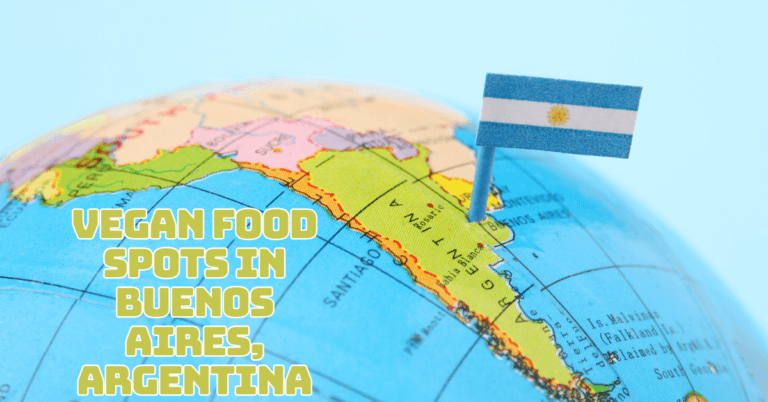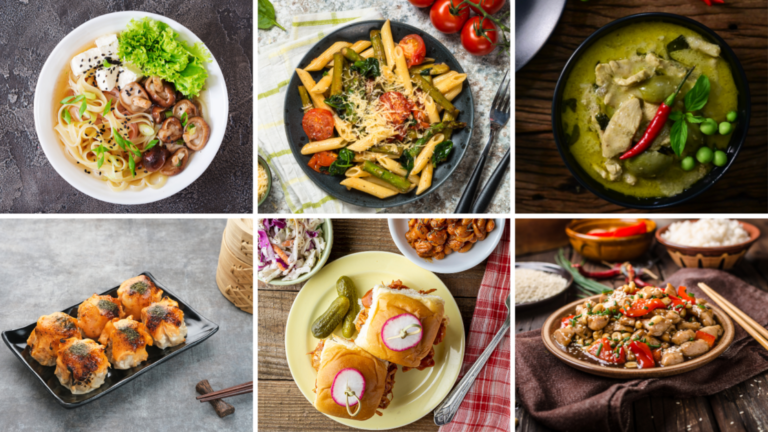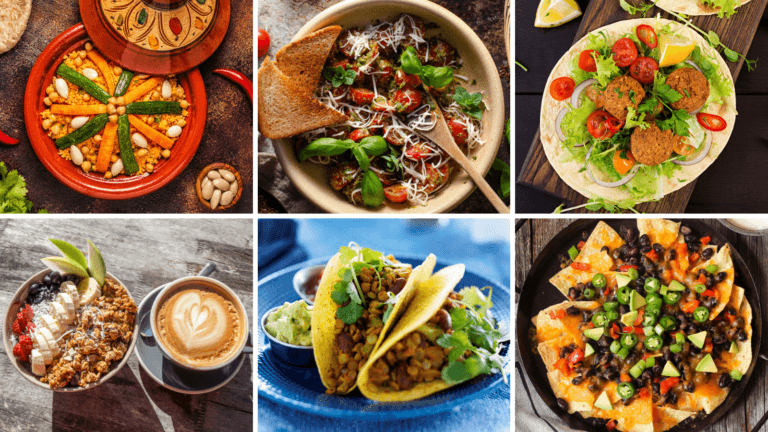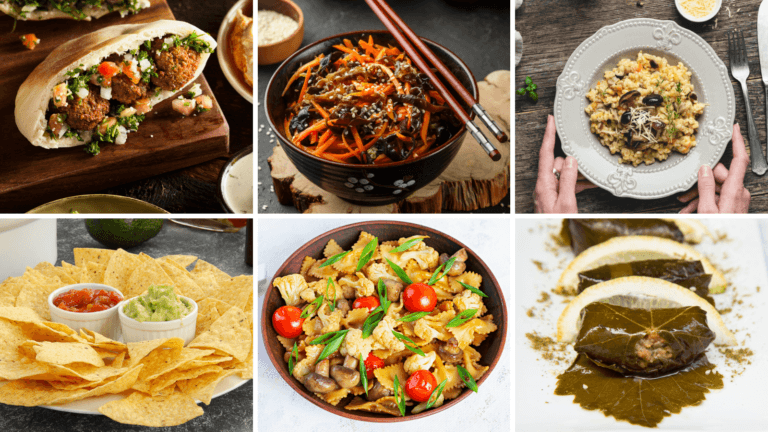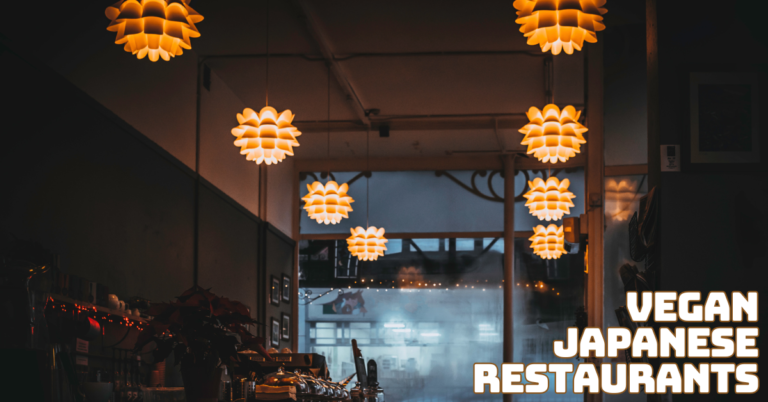Comprehensive Vegan Guide To Eating Out
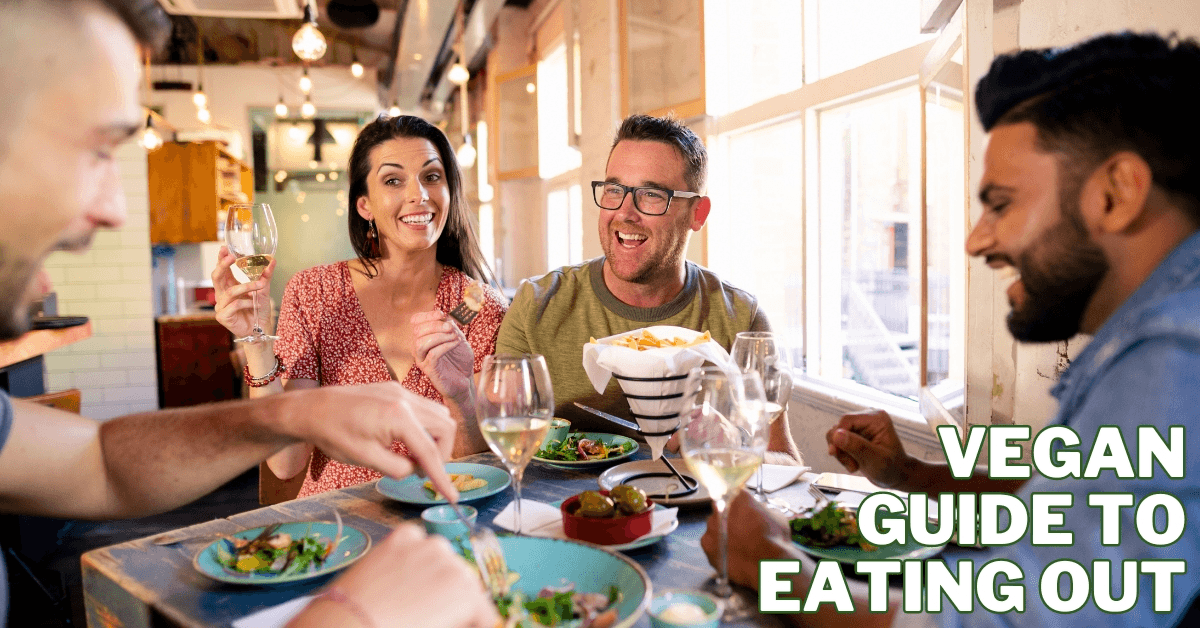
Comprehensive Vegan Guide To Eating Out
The Vegan Guide to Eating Out is a comprehensive resource for vegans navigating dining experiences outside the home.
Whether a seasoned vegan or new to the lifestyle, this guide offers practical advice and strategies for enjoying plant-based meals at restaurants, cafes, and social gatherings.
From decoding menu options to communicating dietary preferences with servers, vegans can make informed choices and savour delicious meals without compromising their values.
With tips on finding vegan-friendly establishments, understanding ingredient lists, and advocating for vegan options, this guide is your go-to companion for embracing a plant-powered lifestyle wherever you dine.
Which Cuisine Has The Most Vegan Food?
Several cuisines offer many vegan options, but some stand out for their abundant plant-based dishes.
Each cuisine has unique flavours and ingredients, making it exciting for vegans to explore and enjoy various plant-based dishes. Let’s learn which cuisine has the most vegan food.
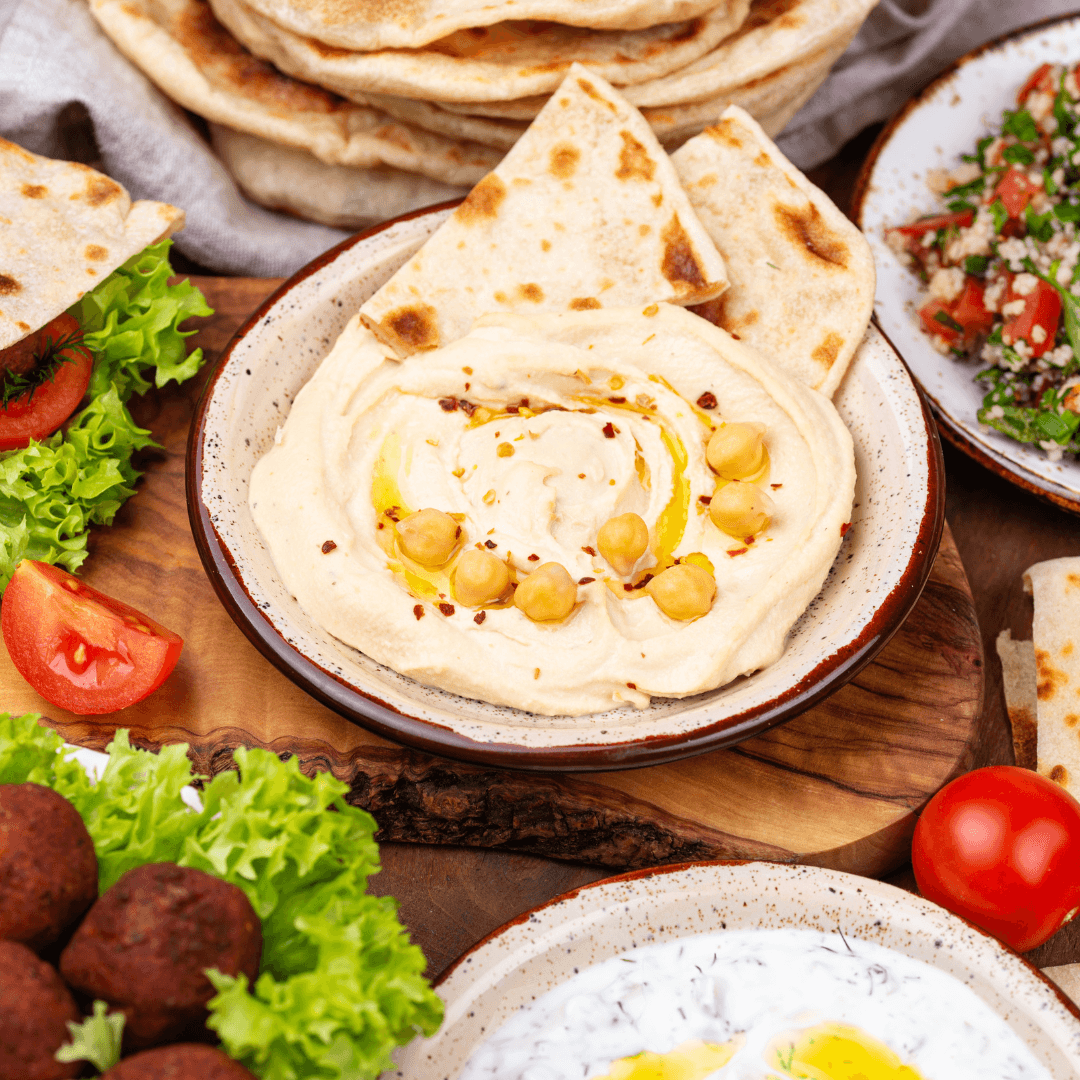
1. Middle Eastern Cuisine
Middle Eastern cuisine, encompassing Lebanese, Syrian, and Palestinian dishes, offers many vegan-friendly options.
Indulge in classics like baba ganoush, a flavourful roasted eggplant dip, or enjoy a refreshing fattoush salad.
For heartier fare, delve into mujadara, a comforting dish of lentils and rice pilaf, or savour grilled vegetable platters bursting with Mediterranean flavours.
Stuffed grape leaves, known as dolmas, provide a satisfying blend of rice, herbs, and spices. With its emphasis on fresh ingredients and bold spices,
Middle Eastern cuisine caters well to vegans, ensuring a delightful culinary journey filled with vibrant flavours and textures.
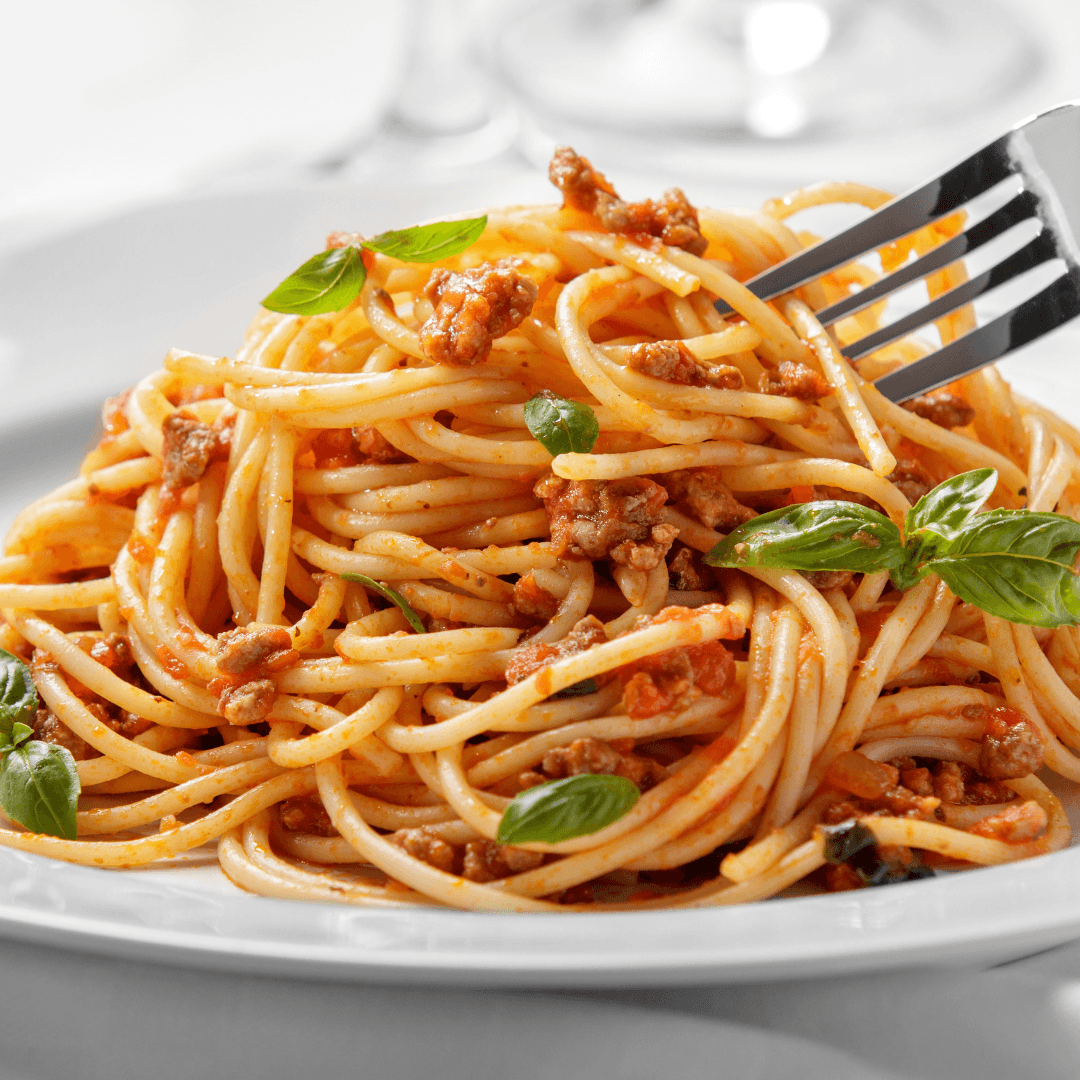
2. Italian Cuisine
Italian cuisine proves remarkably vegan-friendly, boasting a variety of plant-based delights. Delve into classics such as marinara pasta, primavera, and bruschetta, each bursting with Mediterranean flavours.
Relish a minestrone brimming with seasonal vegetables and aromatic herbs for comfort. Light and refreshing, the Caprese salad, composed of tomatoes, basil, and olive oil, offers a delightful taste of Italy.
Moreover, numerous Italian eateries cater to vegans by offering pizza with dairy-free cheese and vegetable toppings.
Vegans are invited to enjoy its delectable food, which strongly focuses on using fresh ingredients in straightforward yet delicious recipes.
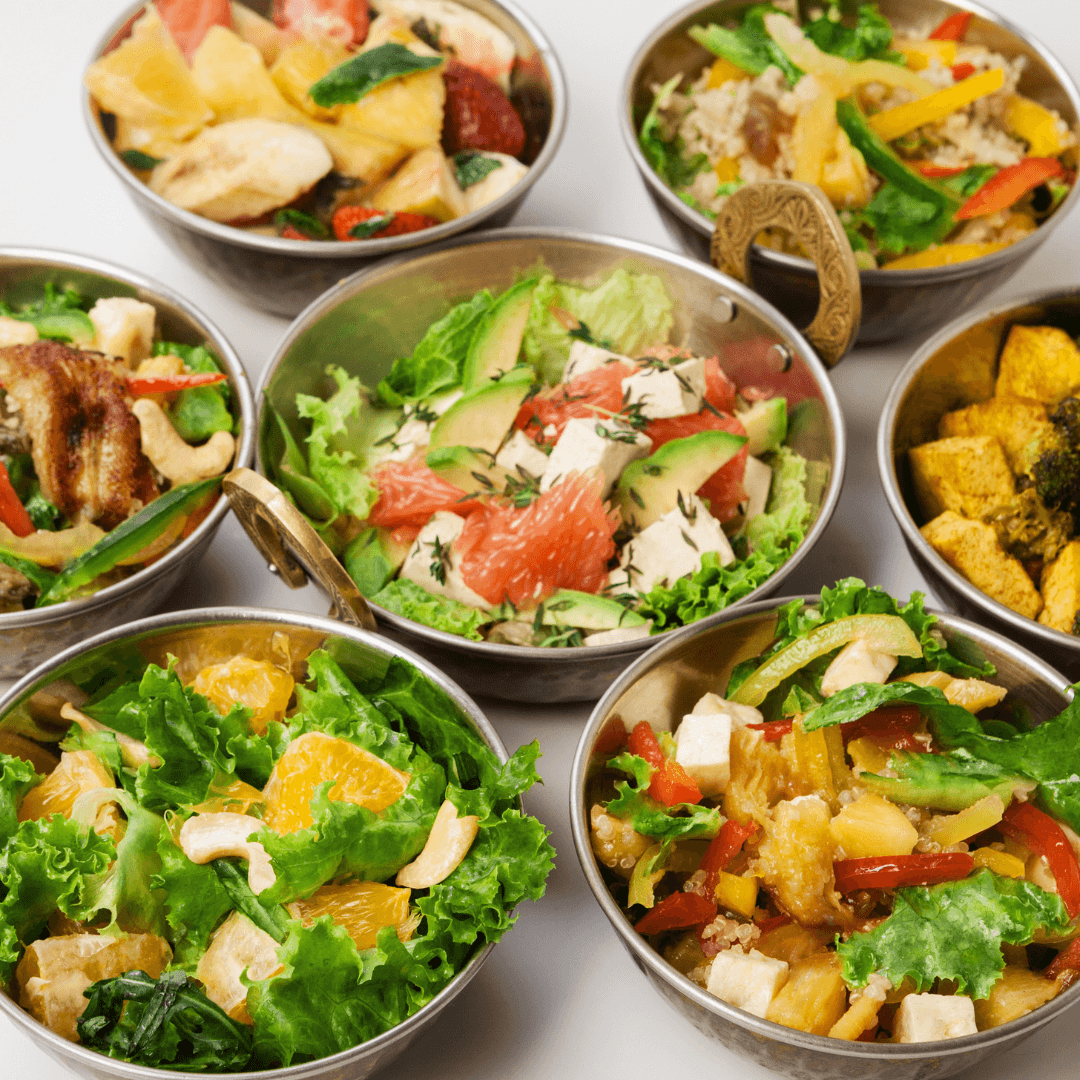
3. Japanese Cuisine
Japanese cuisine presents a diverse array of vegan delights, particularly evident in traditional dishes.
Dive into the exquisite flavours of vegetable sushi rolls, where fresh produce takes center stage. Edamame, tender steamed soybeans, offer a satisfyingly simple snack or appetizer.
Miso soup, crafted with tofu and seaweed, provides a comforting and nourishing experience. Indulge in the crispy goodness of vegetable tempura, showcasing the artful simplicity of Japanese frying techniques.
For a savoury treat, savour agedashi tofu, deep-fried tofu served in a flavourful broth. With its fresh ingredients and delicate flavours, Japanese cuisine caters to vegan palates, offering authenticity and taste.
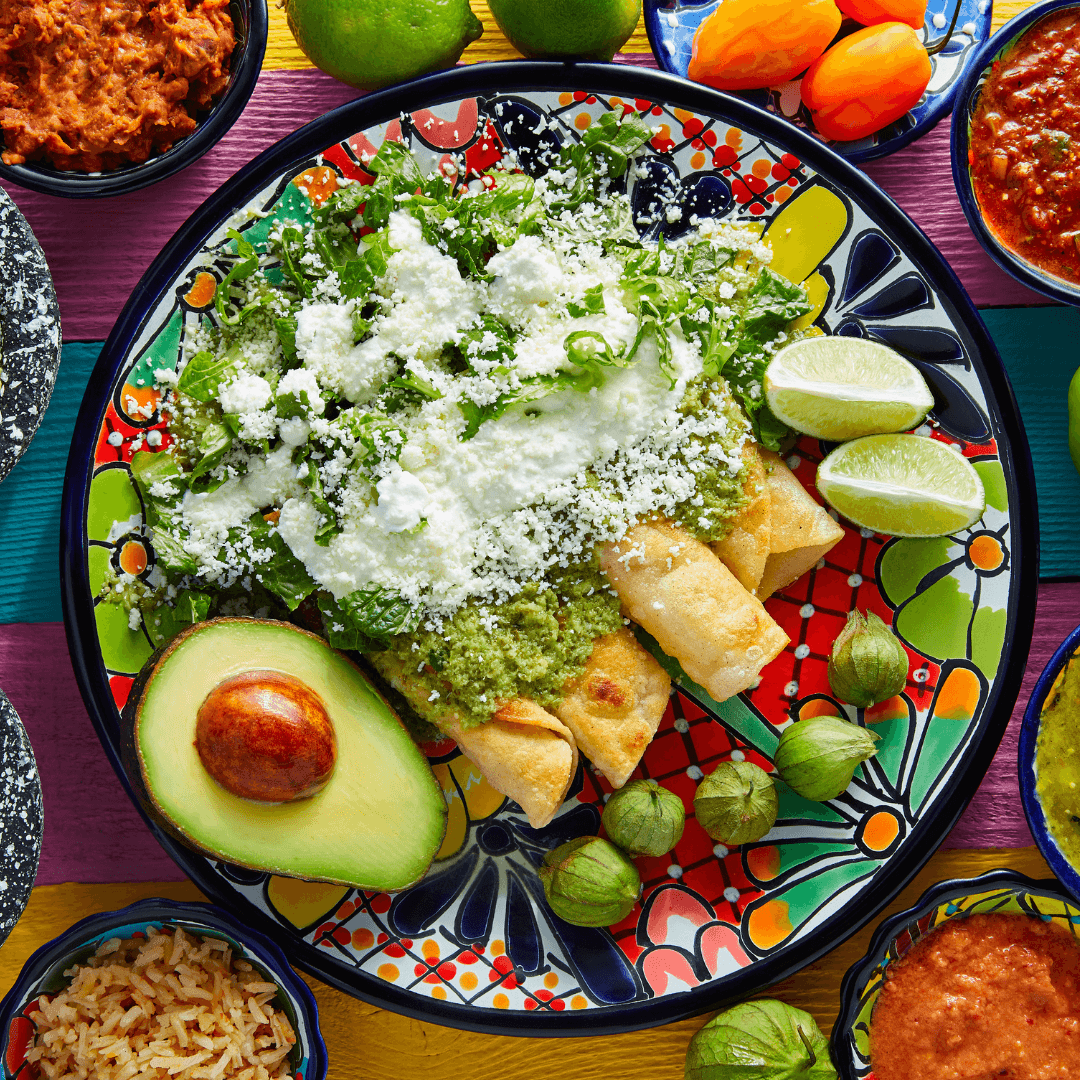
4. Mexican Cuisine
Mexican cuisine shines with its abundant vegan-friendly offerings in the Vegan Guide to Eating Out.
Indulge in flavourful bean burritos and savour the aromatic spices of vegetable fajitas. Enjoy the creamy richness of guacamole and fresh salsa for a delightful appetizer.
Explore the diverse selection of rice and bean dishes for a hearty main course, each bursting with savoury flavours and wholesome ingredients.
Mexican food offers vegans a delightful eating experience because of its emphasis on fresh ingredients and robust flavours.
From casual eateries to upscale restaurants, vegans can confidently navigate Mexican menus and indulge in authentic and delicious plant-based dishes.
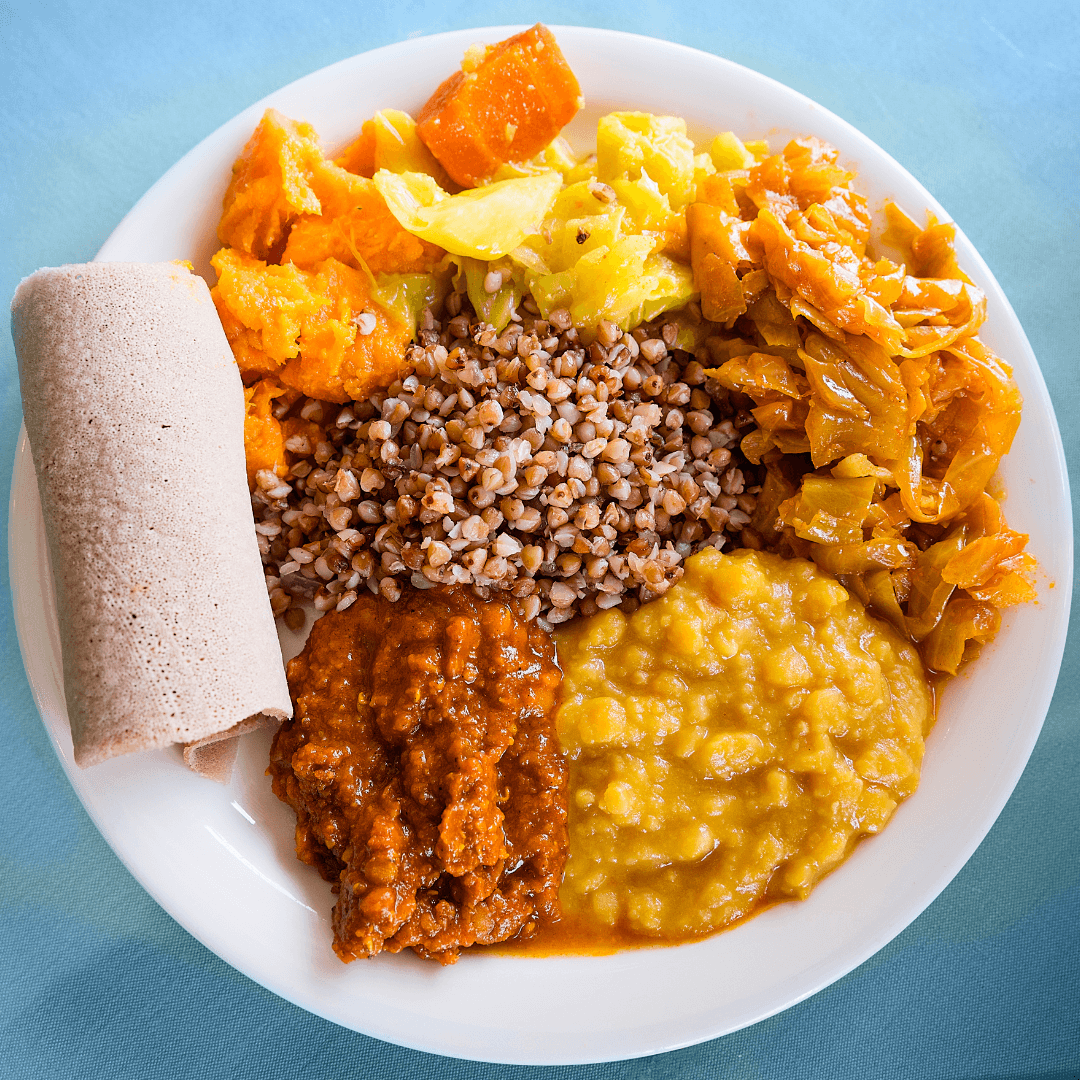
5. Ethiopian Cuisine
Ethiopian cuisine stands out with its diverse array of plant-based options. Explore the unique flavours of injera, a sourdough flatbread that perfectly accompanies various dishes.
Indulge in hearty lentil stews bursting with savoury spices and wholesome goodness—delight in flavourful vegetable curries showcasing Ethiopian produce's vibrant colours and tastes.
For a spicy kick, try the lentil sambusas, crispy pastries filled with zesty lentil fillings. With its emphasis on legumes, grains, and vegetables, Ethiopian cuisine offers vegans a rich and satisfying dining experience that celebrates the abundance of plant-based ingredients.
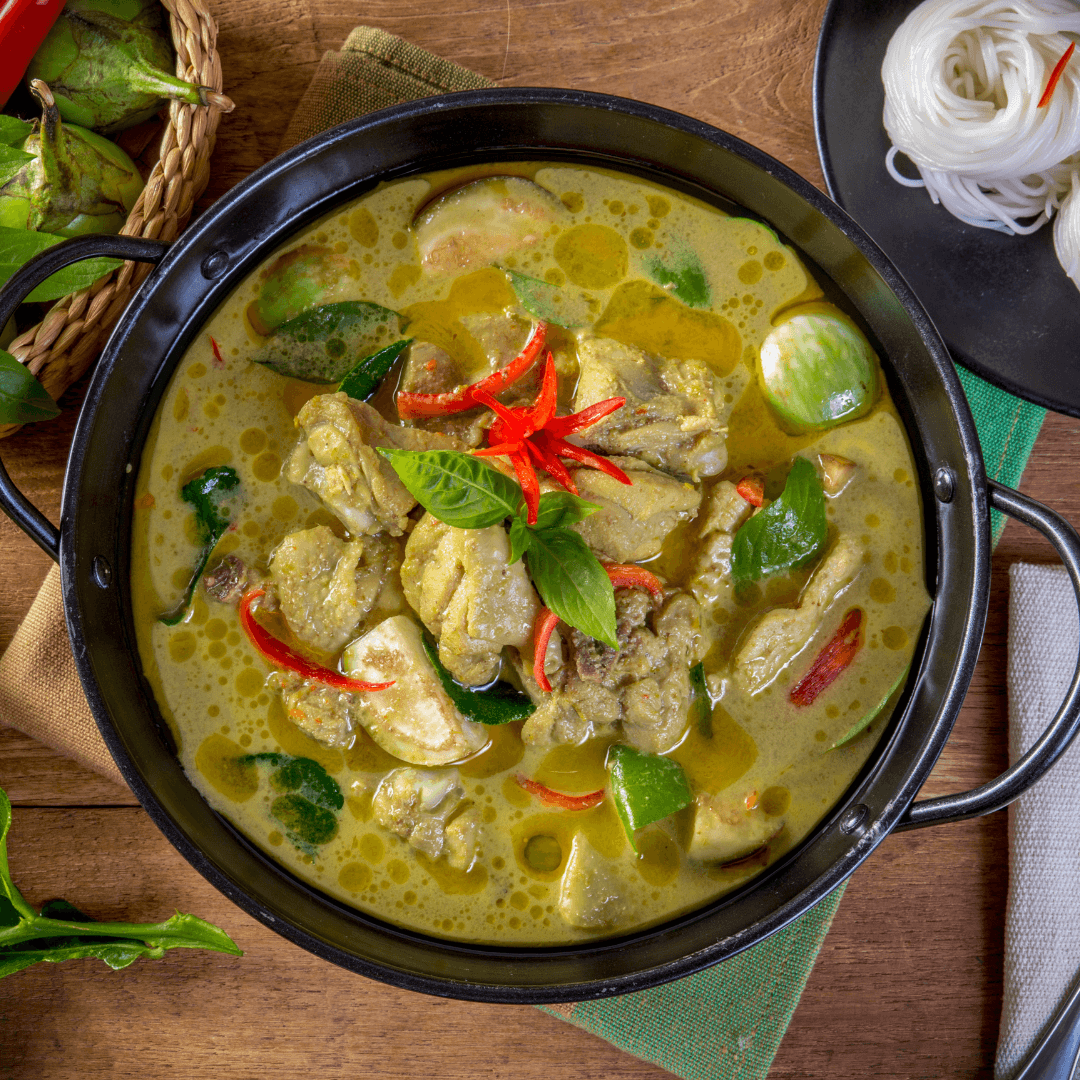
6. Thai Cuisine
In the vegan guide to eating out, Thai cuisine emerges as a culinary delight with its bold flavours and versatile vegan options.
Renowned for its vibrant palate and aromatic herbs, Thai dishes offer a plethora of plant-based delights.
Dive into vegetable stir-fries with fresh flavours and textures, or indulge in the tangy zest of green papaya salad.
Sample tofu satay for a protein-rich appetizer, or relish the creamy richness of coconut-based curries.
Thai cuisine, rich in fresh ingredients and intricate spice blends, easily accommodates vegan diets. From street vendors to high-end eateries, vegans can enjoy Thailand’s authentic flavours across a diverse culinary spectrum.
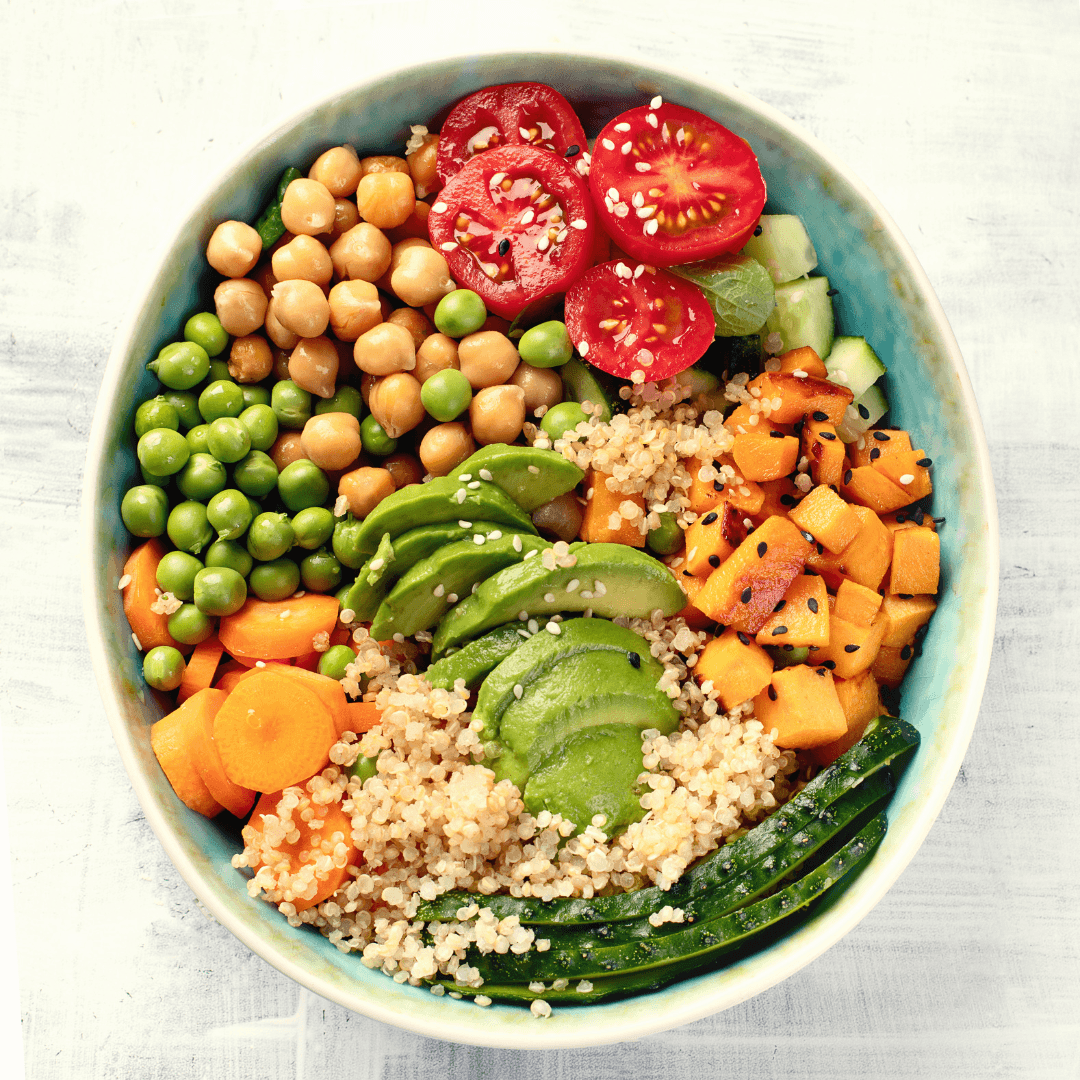
7. Mediterranean Cuisine
Mediterranean cuisine, originating in countries like Greece and Lebanon, showcases a rich tapestry of flavours and textures catering to vegan preferences.
Dive into the iconic falafel, crispy on the outside and tender on the inside, made from ground chickpeas and aromatic spices.
Hummus, a creamy blend of chickpeas, tahini, lemon juice, and garlic, offers a delightful dip for bread or veggies.
Tabbouleh, a refreshing salad of parsley, mint, tomatoes, and bulgur wheat, bursts with zesty flavours.
Stuffed grape leaves, or dolmas, boast a savoury filling of rice, herbs, and spices wrapped in tender grape leaves.
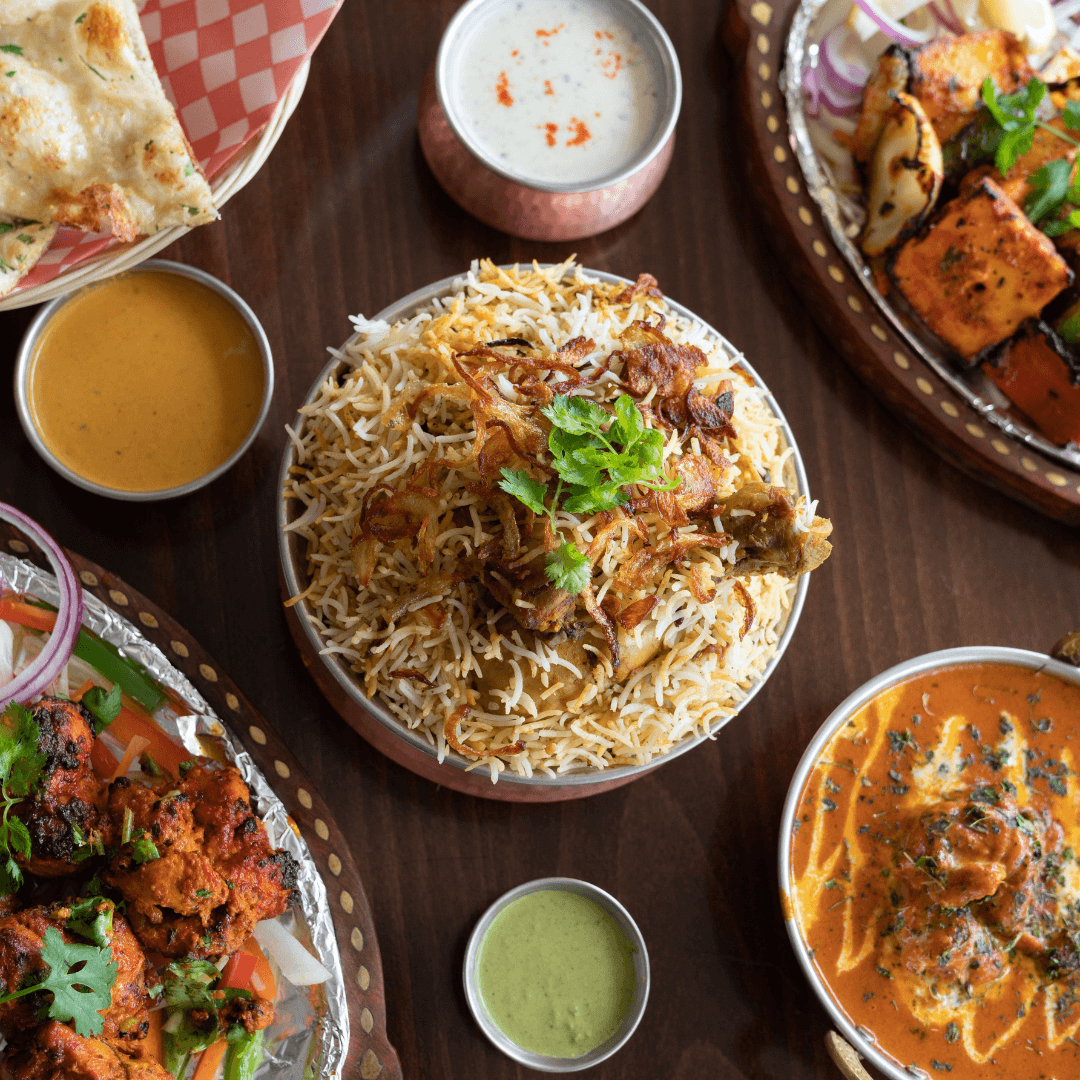
8. Indian Cuisine
Indian cuisine, renowned for its diverse array of lentils, vegetables, and spices, presents a treasure trove of vegan delights.
Explore the comforting warmth of dal, a hearty lentil stew simmered with aromatic herbs. Delight in the colourful and aromatic vegetable curries, bursting with flavours and textures.
Indulge in dosas, thin fermented crepes made from rice and lentil batter, served with flavourful chutneys.
For a lavish treat, savour biryanis, fragrant rice dishes layered with vegetables and infused with a symphony of spices.
With its vast plant-based options, Indian cuisine invites vegans to embark on a culinary journey filled with exquisite tastes and vibrant colours.
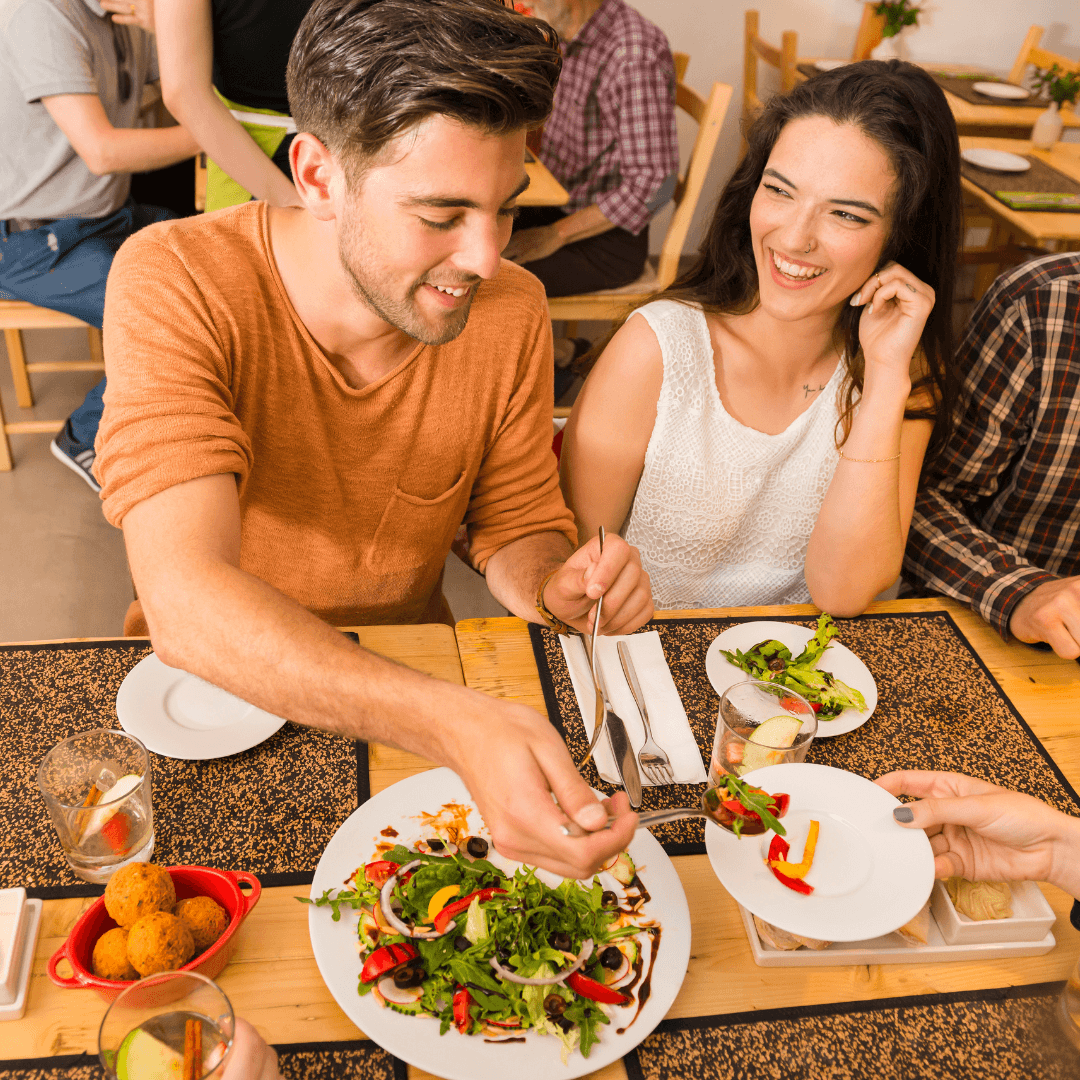
Vegan Guide To Eating Out
Introducing the vegan guide to eating out: This comprehensive resource offers invaluable insights for vegans navigating dining experiences beyond their homes.
With expert tips and practical advice, this guide empowers vegans to confidently explore restaurants, cafes, and social gatherings while staying true to their dietary preferences.
Let's explore some tips for vegan eating out:
1. Research Beforehand
Before heading out, conduct thorough research to locate vegan-friendly eateries nearby. Utilize online resources or apps dedicated to vegan dining to explore menus and reviews.
This proactive approach ensures you’re aware of available options and can make informed choices.
By browsing menus in advance, you can identify suitable dishes and plan your dining experience accordingly.
Additionally, checking restaurant websites or contacting them directly can provide insights into their commitment to catering to vegan diets.
Researching beforehand empowers you to enjoy your dining experience with confidence and satisfaction, knowing that vegan options are readily accessible. Prepare to indulge in delicious plant-based delights.
2. Call Ahead
As part of the vegan guide to eating out, it’s advisable to call ahead to restaurants to ensure a smooth dining experience.
Take the initiative to contact the establishment in advance, inquiring about their vegan options and discussing any special dietary requirements.
By reaching out proactively, you can ascertain the restaurant’s ability to cater to vegan preferences and make necessary arrangements.
This proactive approach fosters clearer communication and enhances the likelihood of a satisfying meal that aligns with your dietary needs and preferences, ultimately contributing to a positive dining experience.
Additionally, contacting the restaurant in advance allows you to gauge their understanding and willingness to accommodate vegan diners.

3. Check Online Reviews
Before dining out, consult online reviews from fellow vegans to gain insights into various restaurants and their vegan offerings.
By reading firsthand accounts of dining experiences, you can discover recommended dishes and assess the overall satisfaction of vegan patrons.
These reviews provide valuable information about the quality of vegan options, the level of accommodation for dietary preferences, and the restaurant's overall ambiance.
Utilizing online reviews empowers you to make informed decisions and select establishments that align with your vegan values, ensuring an enjoyable dining experience every time.
Take advantage of the collective wisdom the vegan community shares to enhance your dining adventures and discover hidden gems in your area.
4. Be Vocal About Your Needs
In the vegan guide to eating out, it’s crucial to be assertive about your dietary needs when dining out.
Communicate with your server, articulating your vegan diet and any particular requirements or restrictions you may have.
By expressing your needs upfront, you ensure that the restaurant staff understands your preferences and can accommodate them accordingly.
This proactive approach fosters a smoother dining experience and minimizes the risk of misunderstandings or accidental non-vegan ingredients in your meal.
Being vocal about your needs empowers you to enjoy your dining experience confidently, knowing your dietary choices are respected and catered to. Clear communication ensures a satisfying vegan dining experience.

5. Customize Your Order
Feel empowered to customize your order according to your dietary preferences. Don’t hesitate to request modifications to menu items to ensure they align with your vegan lifestyle.
Whether substituting dairy products with plant-based alternatives or swapping meat for tofu or tempeh, most restaurants are willing to accommodate such requests.
Being assertive about your preferences allows you to enjoy a wider variety of dishes without compromising taste or ethics.
This proactive approach ensures a satisfying dining experience and encourages restaurants to expand their vegan offerings, catering to a growing community of plant-based diners. Tailoring your order enhances your vegan dining experience.
6. Scan The Menu Carefully
In the vegan guide to eating out, it’s essential to meticulously examine the menu for suitable options.
Scan for vegan or easily adaptable dishes like salads, vegetable stir-fries, or pasta with tomato sauce.
By carefully reviewing the menu, you can identify potential choices that align with your dietary preferences.
Seek dishes featuring plant-based ingredients or inquire about modifications to suit non-vegan dishes.
This proactive approach ensures you find satisfying and delicious options, allowing you to enjoy your dining experience confidently and easily.
Taking the time to scrutinize the menu empowers you to make informed decisions and select dishes that meet your vegan criteria.
7. Inquire About Hidden Ingredients
It's important to inquire about hidden ingredients that may not be apparent in certain dishes. Ask specifically about ingredients such as honey, gelatin, or fish sauce, which may unexpectedly compromise the vegan status of a dish.
Asking the workers at the restaurant for clarification will help you ensure your dish satisfies your ethical and nutritional requirements.
This proactive approach helps to avoid unintentional consumption of non-vegan ingredients and allows you to make more informed choices when dining out.
Taking the time to inquire about hidden ingredients contributes to a more enjoyable and satisfying vegan dining experience. Vigilance regarding hidden ingredients maintains your vegan dining integrity.
8. Request Separate Preparation
It’s essential to address cross-contamination concerns by requesting separate meal preparation. Politely communicate your request to the restaurant staff, emphasizing the importance of avoiding contact with non-vegan items during cooking.
By advocating for individual preparation, you can minimize the risk of unintentional exposure to animal products and ensure the integrity of your vegan meal.
This proactive strategy helps restaurant staff members better understand vegan requirements and shows that you are committed to upholding your dietary preferences.
Taking steps to prevent cross-contamination enhances your dining experience and lets you enjoy your meal with peace of mind.

9. Show Appreciation
In the vegan guide to eating out, it's important to show appreciation for restaurants that offer vegan options or try to accommodate your needs.
Express gratitude when dining establishments go out of their way to cater to your dietary preferences, encouraging them to continue offering vegan-friendly choices in the future.
Acknowledging their efforts fosters a supportive environment for vegan diners, whether through a sincere thank you to the staff or positive feedback on review platforms.
By showing appreciation, you contribute to the growing availability of vegan options and promote a culture of inclusivity within the restaurant industry, ultimately benefiting vegans and non-vegans alike.
10. Leave Feedback
As part of the vegan guide to eating out, leaving feedback is essential for promoting a better understanding of vegan dietary needs in the food industry.
Provide constructive feedback to restaurants about your dining experience as a vegan, highlighting both positive aspects and areas for improvement.
Sharing your insights raises awareness about the importance of catering to vegan customers and encourages restaurants to enhance their offerings.
Whether through online reviews, comment cards, or direct communication with management, your feedback creates a more vegan-friendly dining environment.
This proactive approach fosters positive change and ensures that the food industry values and accommodates vegan diners.
FAQ
1. Which Country Is #1 For Vegans?
Answer: It's challenging to pinpoint a single country as the #1 destination for vegans, as veganism is gaining popularity worldwide.
However, countries like India, with its long-standing vegetarian traditions and abundance of plant-based dishes, and Sweden, known for its innovative vegan products and eco-conscious lifestyle, are often celebrated for their vegan-friendly cultures.
2. Which Country Is Completely Vegan?
Answer: No country can be considered completely vegan, meaning every aspect of its society and culture adheres to vegan principles.
However, some cities, like Tel Aviv Israel, are known for their high concentration of vegan restaurants and options, making them exceptionally vegan-friendly destinations.
3. Is It Hard To Eat Out As A Vegan?
Answer: Vegan dining might be difficult depending on the area and available restaurants. While some places offer extensive vegan menus, others may have limited choices or require modifications to existing dishes.
However, with increased awareness and growing demand, more restaurants are catering to vegan diets, making dining out easier for vegans.
4. How Do You Eat Vegan Anywhere?
Answer: When eating vegan anyplace, prioritize readily available whole foods such as fruits, vegetables, grains, and legumes.
When dining out, research vegan-friendly restaurants beforehand or look for customizable options like salads or veggie stir-fries.
Communicate clearly with servers about your dietary needs and be open to modifying menu items.
5. Can You Live Off A Vegan Diet?
Answer: Living off a vegan diet and meeting all your nutritional needs is possible. Iron, calcium, vitamins, protein, and other necessary nutrients can all be obtained from a vegan diet.
A vegan diet can be successful if it includes a variety of fruits, vegetables, grains, legumes, nuts, and seeds.
Conclusion
In conclusion, the vegan guide to eating out serves as an invaluable resource for navigating dining experiences as a vegan.
With proactive strategies such as researching vegan-friendly restaurants, communicating dietary needs with servers, and making informed menu choices, vegans can enjoy satisfying and delicious meals wherever they dine.
By advocating for vegan options, providing feedback to restaurants, and showing appreciation for accommodating establishments, individuals contribute to a more inclusive dining culture.
The Vegan Guide empowers vegans to confidently explore culinary landscapes through careful planning and assertive communication, ensuring enjoyable dining experiences that align with their ethical and dietary preferences.
I trust you enjoyed reading the article about the Comprehensive Vegan Guide To Eating Out. Please stay tuned. More blog posts will be posted very shortly.
JeannetteZ
>>>Please click here to read my Vegan Travel Guides To World Destinations<<<
Want To Learn How To Create Delicious, Cruelty-Free, Healthy AND 100% Vegan Meals? Try These Awesome Vegan Cooking Courses With A Free 7-DAY MEMBERSHIP.
Your Opinion Is Important To Me
Do you have thoughts, ideas, or questions? I would love to hear from you. Please leave me your questions, experiences, and remarks about the Comprehensive Vegan Guide To Eating Out in the comments section below. You can also email me at Jeannette@LivingTheVeganLifestyle.org.
Disclosure
This post may contain affiliate links. I earn from qualifying purchases as an Amazon Associate and other affiliate programs. Please read my full disclosure.
Here are the links to some of my favourite articles:
Best Vegan Food Hacks That Will Change Your Life
Best Vegan Restaurants In Berlin, Germany
Best Less-Known Places To Visit In Munich, Germany
Best Vegan Restaurants In Seville, Spain
Best Vegan Restaurants In Vienna, Austria

